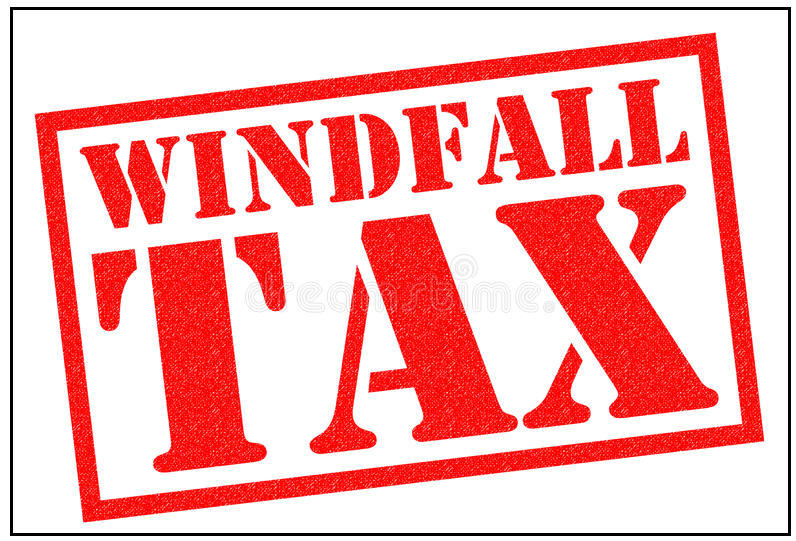
In the ever-shifting landscape of business news, where economic currents merge and diverge, a phrase that has recently taken center stage is the Italy Windfall Tax. This intricate term bears significance in the realm of finance, taxation, and policy decisions. In this comprehensive exploration, we delve into the nuances of the Italy Windfall Tax, dissecting its intricacies and shedding light on the implications it holds for businesses, governments, and economies.
The Essence of Italy Windfall Tax
The Italy Windfall Tax is not merely a string of words; it encapsulates a concept that resonates with economic justice and fiscal strategy. This term refers to a tax imposed on unexpected, excessive profits generated by businesses or individuals. It is a mechanism through which governments aim to redistribute wealth and align market outcomes with broader societal goals.
The Italy Windfall Tax emerges as a beacon of equity, designed to curb extraordinary profits that may arise due to circumstances beyond the control of the taxpayer. This notion of corrective taxation delves into the intricate interplay of economic dynamics and social responsibility.
Fiscal Policy and Economic Impact
At the heart of the Italy Windfall Tax lies the intertwining dance of fiscal policy and economic impact. Governments employ this tax as a tool to moderate economic imbalances, while also replenishing public coffers. The impact of such a tax resonates through the economic ecosystem, influencing market behaviors, investment decisions, and even consumer sentiment.
The uncommon terminology of “progressive taxation” and “macroeconomic stability” gains prominence in this discourse. These terms encapsulate the principles that guide fiscal policy, where taxation is tailored to income levels, and the overarching aim is to maintain economic equilibrium.
Navigating Windfalls and Unforeseen Gains
The notion of windfalls, unexpected financial gains, takes on a distinct significance in the context of the Italy Windfall Tax. Windfalls can arise from various sources—a surge in commodity prices, an unforeseen market shift, or technological breakthroughs. While windfalls may seem fortuitous, they also raise questions about economic fairness and the distribution of wealth.
The term “economic windfall” underscores this notion, reflecting gains that are unplanned and potentially unearned. The Italy Windfall Tax navigates the terrain of windfalls, prompting ethical discussions about the rightful sharing of sudden prosperity.
The Balance of Equity and Economic Incentives
One of the underlying debates surrounding the Italy Windfall Tax revolves around the delicate balance between equity and economic incentives. While such a tax is designed to promote fairness, it also raises concerns about its potential impact on innovation, entrepreneurship, and risk-taking.
Uncommon terminology like “efficiency losses” and “deadweight burden” enters the discussion here. These terms highlight the potential drawbacks of taxation that can impede economic dynamism. Striking a balance between equity and economic incentives is a delicate endeavor that requires a nuanced understanding of market dynamics and societal needs.
The Case for Targeted Application
The application of the Italy Windfall Tax is not a one-size-fits-all approach. Governments must carefully consider its implementation, taking into account industry-specific dynamics and broader economic goals. Targeted application becomes a strategic maneuver, where policies are tailored to address specific windfalls while minimizing unintended consequences.
Uncommon terminology like “selective taxation” and “sectoral considerations” becomes pivotal in this context. These terms reflect the precision required when designing tax policies that align with economic realities and social imperatives.
Implications for Economic Behavior
The Italy Windfall Tax reverberates through economic behaviors, influencing decisions made by businesses, investors, and individuals. When faced with the prospect of a windfall tax, businesses may reevaluate investment strategies, expansion plans, and pricing structures. Investors may reassess risk profiles, anticipating potential tax liabilities.
Uncommon terminology like “tax optimization” and “strategic planning” enters the conversation. These terms underscore the intricate ways in which taxation can shape economic decisions, prompting stakeholders to recalibrate their approaches in response to changing fiscal landscapes.
Policy Challenges and Considerations
While the Italy Windfall Tax carries noble intentions, its implementation is not without challenges. Policymakers must navigate the complexities of tax codes, legal frameworks, and potential unintended consequences. They must strike a balance between fiscal responsibility and economic empowerment.
Uncommon terminology like “administrative feasibility” and “equitable enforcement” assumes prominence here. These terms reflect the practical considerations that policymakers must grapple with when translating the theory of windfall taxation into actionable policies.
The Future of Italy Windfall Tax
As the Italy Windfall Tax continues to be a point of discussion, its evolution and impact remain subject to ongoing analysis and adaptation. Governments and stakeholders will monitor its effects on economic behaviors, market dynamics, and societal equity.
In this intricate tapestry of business news, the Italy Windfall Tax serves as a reminder that economic landscapes are shaped not only by supply and demand but also by policies and principles. The journey ahead involves a delicate balancing act—navigating between the imperatives of taxation and the imperatives of economic progress.
Conclusion
The phenomenon of the Italy Windfall Tax delves into the crossroads of economics, policy, and societal equity. This term serves as a lens through which to explore the nuanced interplay between wealth redistribution, fiscal strategy, and economic behaviors.
In navigating the landscape of Italy Windfall Tax, understanding uncommon terminology, legal intricacies, and market dynamics is imperative. The story of this tax underscores the ongoing quest for an economic equilibrium where fairness, innovation, and economic empowerment coalesce to shape a more equitable and prosperous future.
